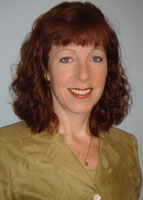SU Law Talk: The Evolution of India‘s Patent System: Implications for Public Health and Pharmaceutical Innovation
Date: Tuesday April 15th
Time: Noon – 1PM
Place: Room 109
India developed a world-class generic drug manufacturing industry by excluding pharmaceutical products from patent protection in 1972. In 2005, India reintroduced pharmaceutical patenting in order to comply with its obligations as a WTO member. For an emerging superpower still mired in poverty and public health crises, the change did not come quickly or without controversy. Multiple influences shape India‘s “mosaic view” of patents: a huge population, widespread poverty, lack of health insurance, wariness towards foreign influences, a developed but fragmented pharmaceutical sector, a fledgling entrepreneurial culture of innovation among indigenous pharmaceutical and biotechnology firms, a fragile coalition government, and a vocal citizenry remarkably aware of esoteric patent law developments. Professor Mueller’s research included a sabbatical visit to India in late 2005 to interview experts and gather data on the ground. Concluding that the new patents regime is neither the fully-Westernized panacea hoped for by its pro-TRIPS advocates nor the unmitigated disaster for the Indian public predicted by its fiercest critics, Professor Mueller will offer recommendations for the future of India‘s evolving patent system.
Papers By Professor Mueller on India’s patent System:
J. Mueller, The Tiger Awakens: The Tumultuous Transformation of India‘s Patent System and the Rise of Indian Pharmaceutical Innovation, 68 University of Pittsburgh L. Rev. 491 (2008), available at SSRN: http://ssrn.com/abstract
J. Mueller, Taking TRIPS to India-Novartis, Patent Law, and Access to Medicines, New Eng. J. Med. (Feb. 8, 2007), at 541-43, available at http://content.nejm.org/cgi
J. Mueller, Biotechnology Patenting in India: Will Bio-Generics Lead a “Sunrise” Industry to Bio-Innovation?, 76 UMKC L. Rev. 437 (forthcoming 2008), available at SSRN: http://ssrn.com/abstract
PS: I will be live blogging the talk for FFIP tomorrow.


 This week
This week 
